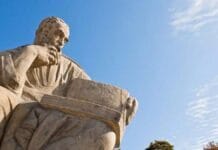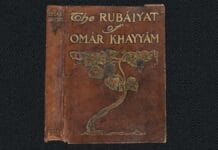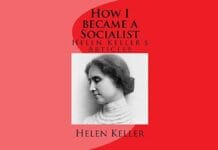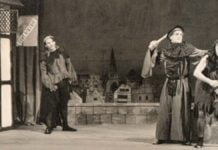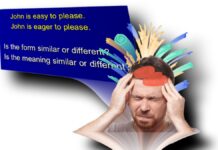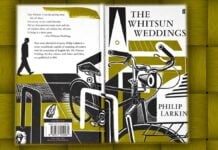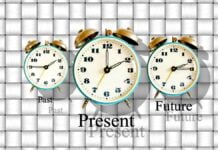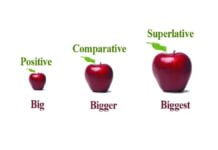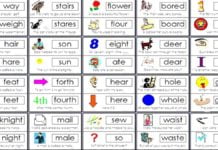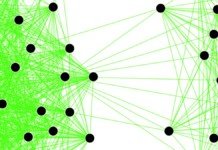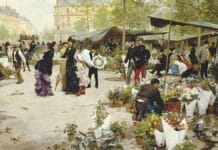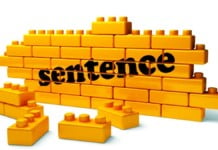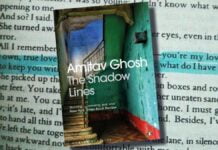Jorge Luis Borges’ The Library of Babel is a short story first published in 1941 as part of his collection Ficciones. It is a metaphysical and philosophical exploration of infinity, knowledge, and the limits of human understanding. The story is written as a monologue by a narrator living in an infinite library representing the universe. It is a masterpiece of speculative fiction that uses the metaphor of an endless library to explore profound philosophical and existential themes. The story’s lasting impact lies in its innovative ideas, intricate structure, and timeless relevance.
Borges’s narrator describes his universe as a library. He describes the hexagonal galleries of bookshelves, which contain 20 bookshelves each. These galleries are identical, each with the same number of books and bookshelves that connect through vestibules, where people can sleep or go to the restroom. The narrator himself is an old man. When he dies, another librarian will throw him into an abyss. He expects his fall to be “infinite.” Much like Babylon in The Babylon Lottery, in The Library of Babel, Borges uses one specific setting to discuss the universe. One fact of the library is its infinity, immediately highlighting the ineffability of the universe as a whole.
The narrator further explains aspects of the library. Each book has the same number of pages, with the same number of lines and letters in each line. Furthermore, each book has letters on the spine, but the letters do not reveal what the book will say. Librarians (people) in his universe believe that the library has always existed and was thus created by a god. Man, the narrator says, “may be the work of chance or of malevolent demiurges.” Though the library is infinite, it has some sense of order. In the context of the universe, this order represents the laws of nature. Because the outsides of the books do not reveal what they say on the inside, the library requires librarians to do the investigation (reading) themselves. This reflects the necessity of human study and investigation to learn more about the world.
There are 25 characters in the library —22 letters, the period, the comma, and the space. Much of the work in the library seems like nonsense to the librarians, who believe that much of the work is written in an ancient or remote language. Still, while the narrator agrees that men used to speak and write in ancient languages, some of the more seemingly nonsensical texts do not correspond to any language, ancient or modern—for example, one book the narrator’s father found consists solely of the letters MCV, repeated over and over.
Because the library is infinite and contains every possible combination of letters, everything that can be expressed exists. Furthermore, no text is alike. At first, the librarians rejoice that all information in the universe is theoretically at their disposal. However, this fact becomes overwhelming to the librarians, as most books are nonsense, and it would be impossible to search through all of them for meaning.
Some librarians believe that there is a book somewhere in the library that acts as a key to the library itself, but it would be nearly impossible to find. Many talk of a mysterious set of books called Vindications: “books of apology and prophecy, which vindicated for all time the actions of every man in the world and established a source of prodigious arcana for the future.” Many pilgrims search for these books, some going mad in the process.
The narrator himself can affirm that these Vindications exist, having seen two of them, but to find them all would be impossible. There are official “inquisitors” in the library whose sole purpose is to unlock its secrets. On the other hand, some librarians take it upon themselves to destroy “useless” works. This practice is looked down upon, but the narrator points out that since the library is infinite and each book has countless facsimiles (with one small difference from the original), the effect is negligible.
The narrator notices that these inquisitors seem exhausted. The librarian takes comfort in the idea that one of the books contains the secrets to the library. He imagines an immortal voyager exploring the library until he finds all the information repeating, taking comfort in the ultimate order of the universe.
The Structure and Nature of the Library
The narrator describes the library as a seemingly infinite expanse of hexagonal rooms connected by narrow hallways. Each room contains shelves of books filled with every possible combination of letters, punctuation marks, and spaces. The library holds all knowledge that could ever exist, but most of the books are nonsensical.
Themes of Infinity and Knowledge
Borges delves into the concept of infinity with remarkable depth. The story raises questions about the accessibility of knowledge in an infinite universe and critiques humanity’s hubristic belief in its ability to uncover absolute truths. The library’s paradoxical nature—where infinite knowledge becomes indistinguishable from chaos—offers a profound commentary on the limitations of reason and language.
Infinite Knowledge and Futility
The library’s infinite nature poses a paradox: while it contains every book that could ever be written, the vastness of the library makes finding meaningful information nearly impossible. This paradox highlights the futility of attaining complete knowledge or understanding in an infinite universe.
The Search for Meaning
Many library inhabitants dedicate their lives to searching for a book that explains the library itself or the meaning of existence. These inhabitants are divided into factions, such as the “Purifiers,” who destroy what they perceive to be meaningless books, and the “Seekers,” who wander the library in vain. This search symbolizes humanity’s quest for truth and meaning in an often incomprehensible world.
The Concept of the Librarian
The narrator speculates about the existence of a mythical “Man of the Book,” a librarian who has supposedly found a book that is the key to understanding all others. This figure represents the human tendency to seek out ultimate truths or messianic figures who can provide clarity in an overwhelming universe.
Metaphor of the Library
The library is a powerful metaphor for the universe, knowledge, and human existence. Its infinite nature symbolizes the boundless possibilities of creation, while its chaotic contents reflect the randomness and ambiguity of life. The library’s structure forces readers to confront the tension between infinity and human finitude.
Ending Reflection
The narrator concludes by contemplating the cyclical and eternal nature of the library. Despite the despair it evokes, the library offers a sense of continuity and permanence. It is both a prison and a wonder, reflecting the dual nature of existence itself.
Philosophical Undertones
The story resonates with ideas from existentialism, determinism, and chaos theory. It explores the futility of human endeavours in the face of infinite possibilities, echoing existentialist concerns about the search for meaning in a seemingly indifferent universe. The randomness of the library’s books also invites reflection on the nature of creation, chance, and determinism.
Structure and Style
Borges’ narrative style is dense and precise, mimicking the labyrinthine complexity of the library itself. His use of a first-person narrator draws readers into the surreal world of the library while maintaining a sense of detachment. The mathematical precision with which the library is described enhances its realism and philosophical depth.
Symbolism
The story is rich in symbolism. The hexagonal rooms represent interconnectedness and balance, while the books symbolize the entirety of human potential and creation. The “Man of the Book” reflects humanity’s yearning for ultimate truths and hoping to find order in chaos.
Critique of Human Aspirations
Borges critiques the human tendency to seek order and meaning in an inherently chaotic and infinite universe. The library’s inhabitants’ futile search for knowledge mirrors humanity’s existential struggle to find purpose, illuminating human limitations and resilience.
Timeless Relevance
The story’s themes remain relevant in contemporary discussions about the overwhelming amount of information available in the digital age. The library’s infinite nature is a prescient metaphor for the internet, where vast information often obscures meaningful knowledge.
Impact on Literature and Thought
Borges’ The Library of Babel has influenced various disciplines, including literature, philosophy, mathematics, and information theory. It is celebrated as a precursor to postmodernism, with its self-referential and metafictional qualities challenging conventional notions of storytelling and truth.
Jorge Luis Borges’ The Library of Babel is a profound meditation on infinity, knowledge, and human existence. Through its intricate metaphor and philosophical depth, the story challenges readers to confront the limitations of human understanding in an overwhelming and chaotic universe. Its timeless relevance, innovative structure, and intellectual richness make it a cornerstone of modern literature, offering endless possibilities for interpretation and reflection.


